Electronica and synth fans get a chance to see the iconic pioneer Gary Numan live on his UK home turf this autumn, as he celebrates the 45th anniversary of his third album, “Telekon”.
Emerging from the post-punk era, Gary created a sonic blueprint for the new wave and techno that would follow, with a robotic stage persona delivering stark contrast to the glitter balls and ruffles of the late ‘70s and early ‘80s.

His early breakthrough, “Are Friends Electric?”, came with Tubeway Army in 1978, but remains synonymous with him as the solo artist he quickly became, with his Army colleagues becoming his band. “Cars”, a track from his 1979 solo debut, soared up the charts all around the world and remains a global anthem.
Now, hot on the heels of his rather overdue Glastonbury debut this summer, Gary is back on the road to celebrate the “Telekon” anniversary. “Telekon” was released in 1980 on Beggars Banquet and debuted at the top of the UK album chart, making it Gary’s third consecutive number one album. Cited by many as an influence, Trent Reznor claimed to have listened to it every day during the making of Nine Inch Nails’ “Pretty Hate Machine.”
“Telekon” married muscular synths with elegant strings, a paradox that urged us to lean in closer to listen harder. At the time, we wondered what we had just heard; now we acknowledge an album that helped give permission to man/machine musical innovation and a whole genre of electronica.
A fun fact about “Telekon” for fellow ‘80s fans: Scottish rockers Simple Minds, back then on the cusp of the extraordinary success for which they were destined, are credited, as a band, on the album personnel list – for the provision of ‘handclaps’. I do not miss this opportunity to ask Gary how such an unexpected collaboration came about, and the answer is refreshingly simple.
“Oh, I love them! Way back then, before they made it, I was a massive fan, really big fan. They supported me in Germany when I first started doing proper touring, and they blew the shit off me on stage, they were really good! And then, when we were recording “Telekon” I invited them along, just to hang out for the day.
“While they were there, we needed to record some handclaps, and I was just going to do it on my own over and over – but asked them to do it with me. Nothing to it! They’re a great band. I like them.”
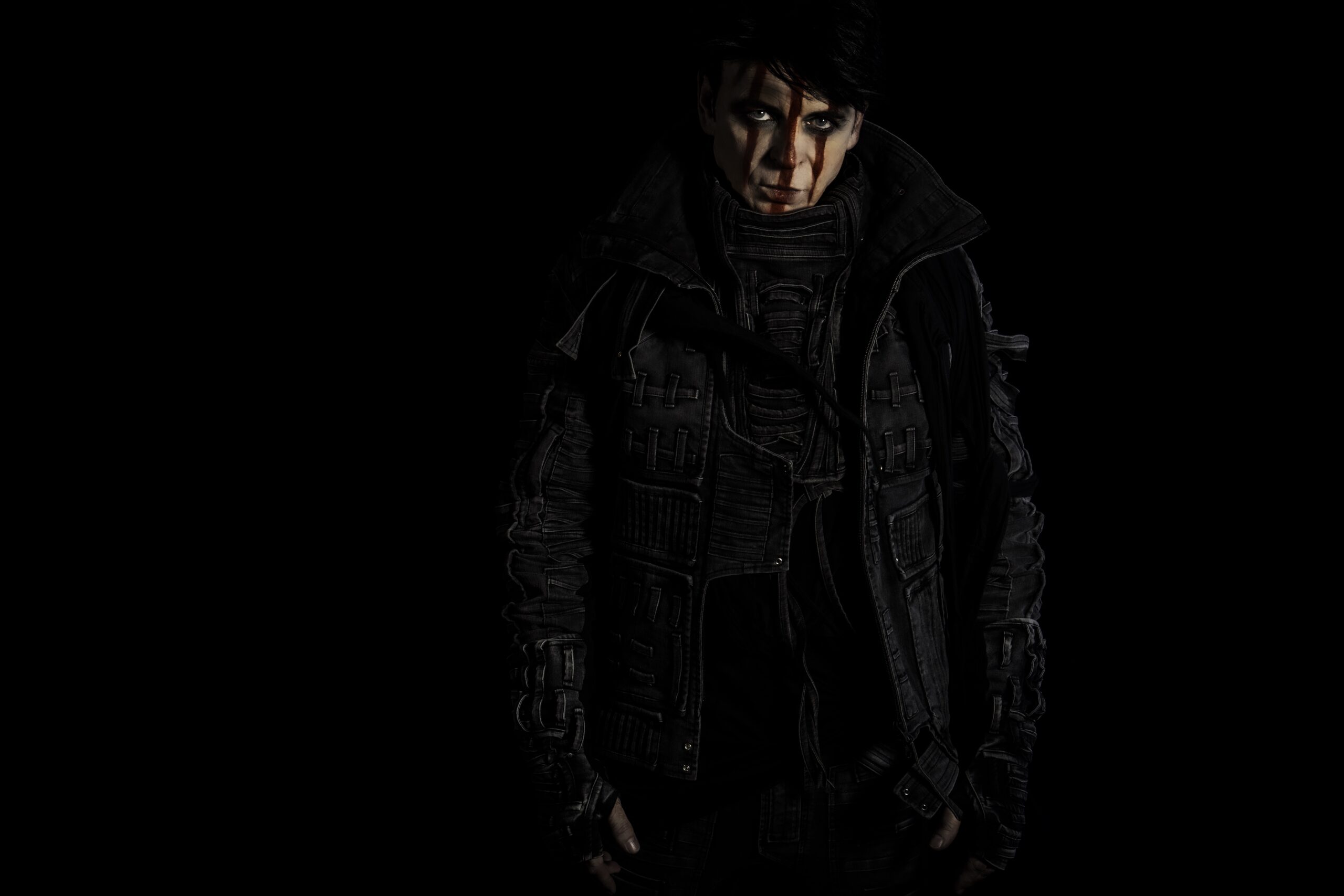
As we turned over onto the clean pages of a whole new decade, this 1980 album gave us singles such as “We Are Glass”, “I Die: You Die”, and “This Wreckage”.
And if you’re in the market for a trip down memory lane to the songs of that youth long gone, I suggest you run-don’t-walk to get tickets for this – because Gary is as forward-looking now as he was futuristic back then.
“I don’t really have much to do with nostalgia, generally speaking,” Gary tells me. “These anniversary things are a reminder of how much time has gone by; it’s like another nail in the coffin, quite literally!
“We toured “The Pleasure Principle” [1979] when it was 20 years old, and I really begrudged it, I was grumbling all the time! But I’ve come to terms with it. These are key moments to the fans as well as key moments in my life.
“I’ve just always been interested in going forward. I’m really excited about what I’m going to do tomorrow, rather than talking about what I did yesterday – and I want to look down at the set-list and see what song’s coming next, and think: oh yeah, fucking love this one. Not look down and think: oh god, not that one again!
“I’ve always been slightly self-centred about it, I suppose, to do what I want with just a nod to the older songs, the ones I think can stand the test of time and stand up in a modern set. But I am aware that means a lot of people don’t get to hear as many of the old songs as they would like to, so when there’s a significant anniversary like this, of an album that warrants this sort of attention, then I feel I can get off my high horse a little bit and say: all right then, we’ll celebrate that!
“We’ll go out and do songs from that album, and other songs from that sort of era. All old stuff. I don’t do much of it normally, but when I do, I do it fully. It’s my way of sort of balancing up.”

As well as enjoying some of the tracks so synonymous with that era that made him something of an icon, fans can expect a level of energy that belies Gary’s age. Now 67, he has the stamina to knock out a schedule that might leave other performers breathless at half his age.
A run of 15 dates is compressed into 19 days, stretching from Glasgow right down to Bournemouth. I wonder if he can recommend a secret elixir for us all, but I’m rapidly realising that with Gary, quite simply what you see is what you get.
“I’m just lucky. I take after my Dad in every way, in fact I’m more like a clone than an individual human being! And he’s 89 this year and still amazing, totally fit and tearing about doing his thing. He’s absolutely sharp as a tack and shows no sign of slowing down. He had an amazing work ethic, always, and I look to my Dad as the standard. He’s been a fantastic role model since the day I was born.
“But interestingly, the British tours are my most laid-back tours. We do two or three shows and then a day off, but when I’m touring America we’re doing seven or eight and then a day off if you’re lucky. America is much, much harder. Huge distances between the shows and the venues tend to be smaller (and grimmer!) than I do in Britain, so this tour feels like a relaxed kind of thing.
“But it’s all money related. Every time you have a day off, you’re paying out for the crew, the band, the gear, the bus. The more days off you have, the less financially successful the tour is – and it’s very difficult to make decent money when you’re touring. You have to be quite ruthless. You need a really strong work ethic – and a band that’s willing to do that, which I’m lucky to have.”
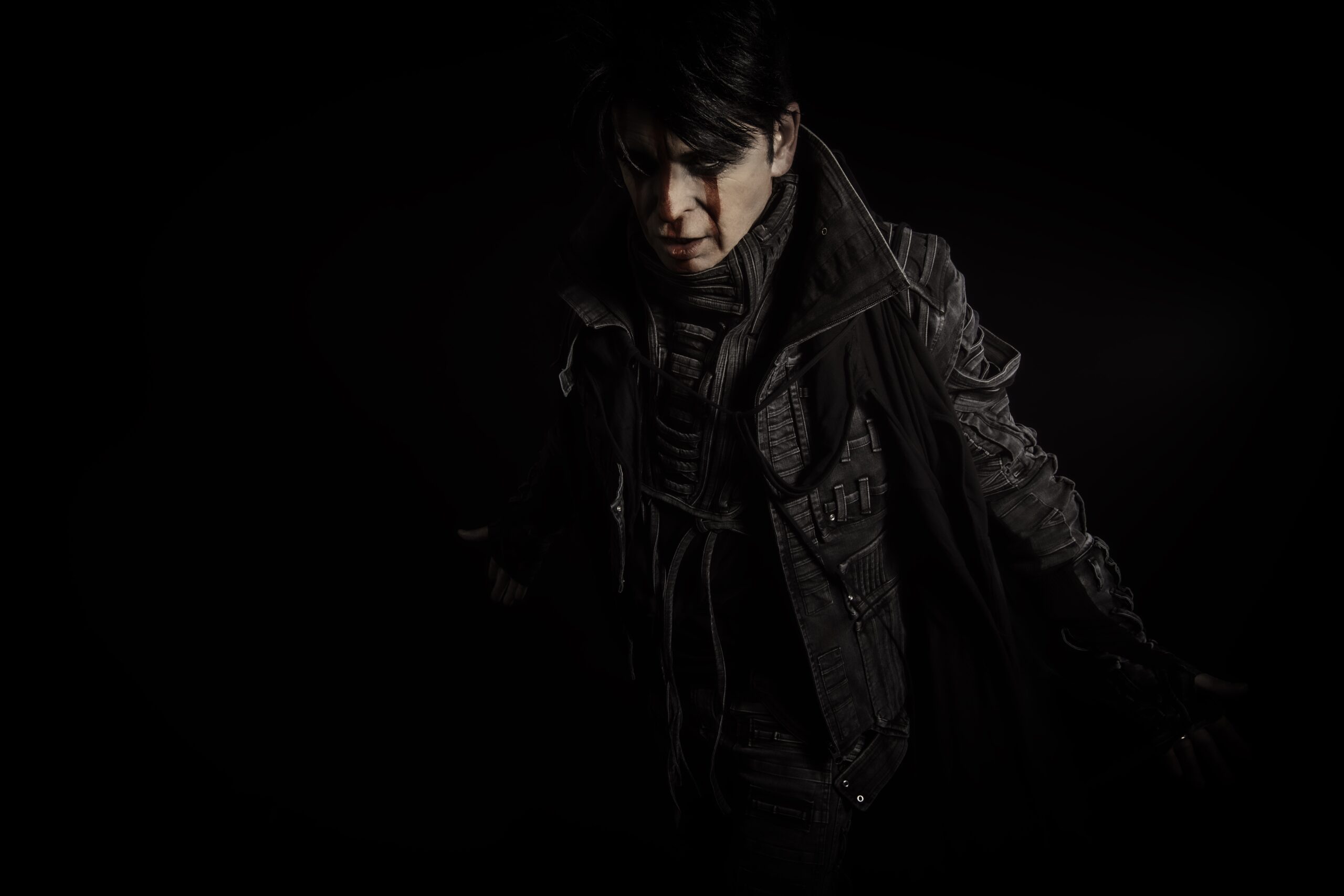
Mention of his band makes me wonder what makes musicians so loyal to Gary, since most of the performers joining him on stage have stood beside and behind him for 25 years or more. And I think the answer is a simple matter of getting back what you give.
Because beneath his urban image – kohl-rimmed eyes, Goth-like wardrobe, and signature mop of hair the colour of granite – beats the heart of a man steeped in old-fashioned values. It makes this a strangely endearing conversation, punctuated with emotional intensity and more self-deprecation than I might have expected from someone whose place in the ‘legends’ category was long ago confirmed.
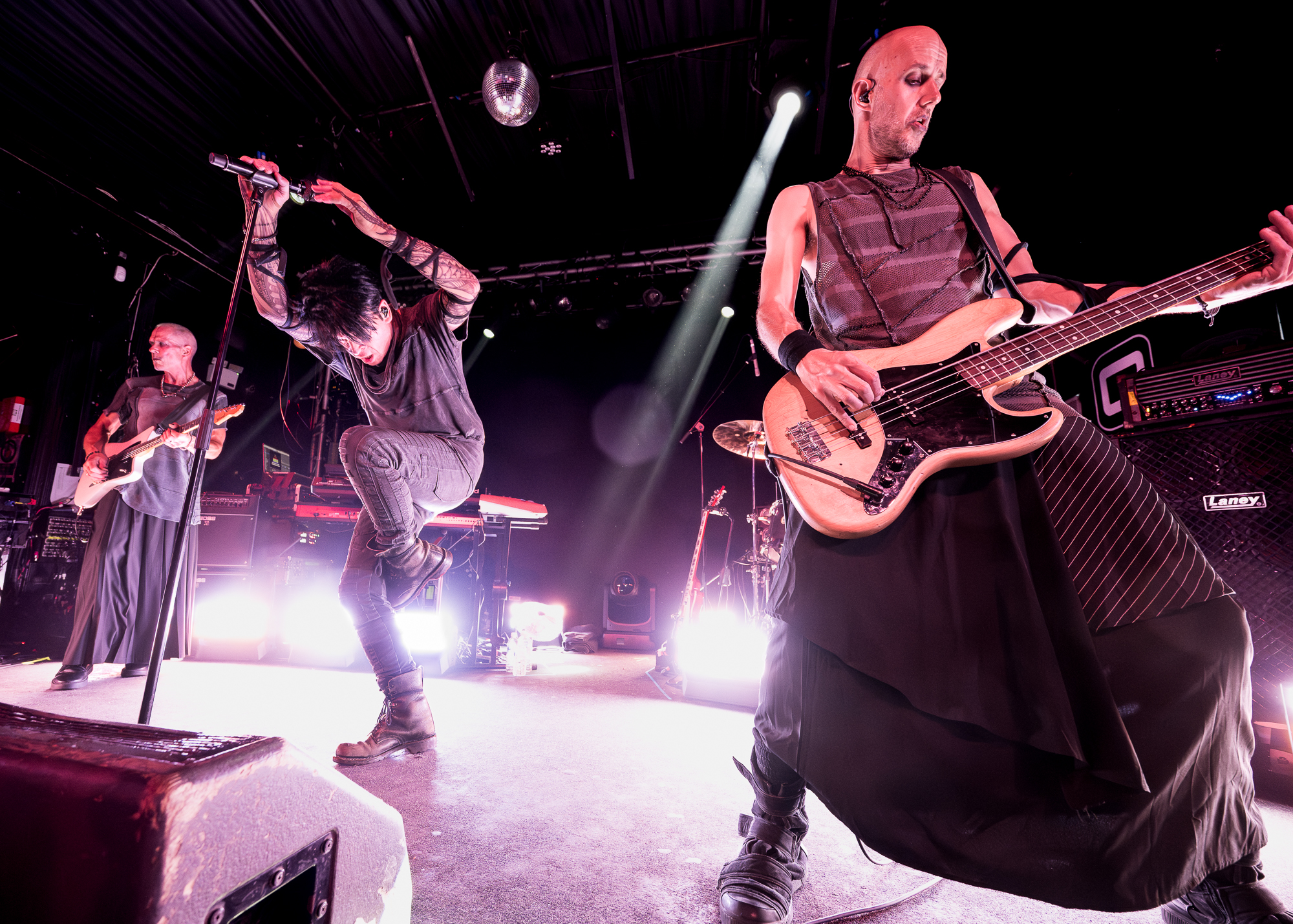
I take a punt on getting personal in my Zoom chat with Gary, having been really struck by reading an interview he gave many years ago. In it, Gary spoke movingly about his wish to “be a better person, to be worthy of my wife” – 57-year-old Gemma, with whom he shares daughters Raven (22), Persia (19) and Echo (18).
Rather cheekily perhaps, I ask him if he thinks, after nearly 32 years together, he has achieved it? His response is disarmingly vulnerable, particularly as it turns out he and Gemma are facing some hefty challenges right now.
“Well, it’s a work in progress really. I’m still…I’m autistic, so I lack certain things which are really, really important. I’ve tried to get better over the years. I mean, I’m terrible at sympathy. If anyone has an emotional crisis going on, I’m the worst person to be around – and it’s not because I don’t care, but my way of dealing with things is very logical.
“For example, Gemma just had a really big operation a few weeks ago. She had a kidney removed and then reattached because of a rare condition called Nutcracker Syndrome, where the main vein from the kidney gets squashed and the blood backs up into the kidney. It’s very, very painful and really dangerous.
“She’s been going through it for a good couple of years, actually, with different things. She had a mini stroke last year. She’s had a hole in the heart fixed. She had that thing where your heart goes crazy – like 240 beats per minute, you can’t even tap that fast!
“And now her neck is crumbling, and she has to have three or four neck discs replaced with artificial ones. It’s been giving her migraines, and they are causing a thing called white matter disease in the brain, and those white dots are beginning to link up and that’s a problem”, Gary explained.
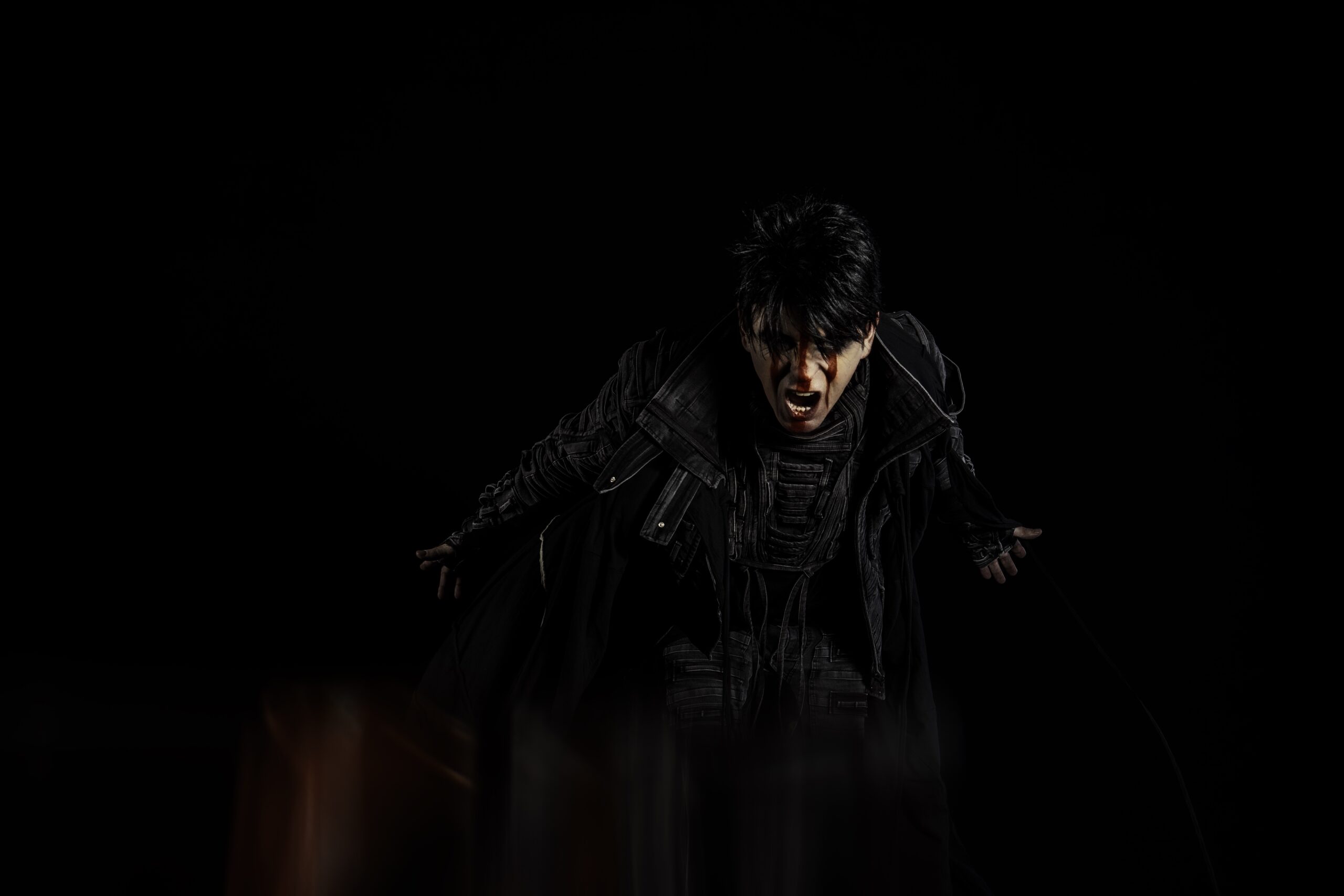
He adds: “I know I’m fantastic at looking after her. I’m really good at that – but I’m really, really terrible at the arm-round-the-shoulder, there-there type of stuff. I’m shit at that. And sometimes that’s all she needs. She just needs somebody to be sympathetic – and I don’t know when to be, and I don’t know how to be. I don’t know what I’m supposed to do, and I don’t recognise when it’s needed. But I do now know to ask.
“But I think I’m a really good husband, and I’m a really good dad. I know there are areas which are really important that I’m really lacking in, but there are things I’ve been able to work on and get better. I don’t argue any more. I’m not awkward, I’m not moody! There are lots of things I’ve fixed, and I’ve definitely become a much, much better person than when we met. But some things are just fundamental to the way I was born.
“When we met, to me she was just an absolutely complete person. She was just…done. Even her imperfections made her perfect; you need some friction, or else you’re bland and boring. But I was extremely damaged when we met – some of it from birth, some of it from experience, some of it from life choices.
“I mean, I chose a really strange profession for somebody who’s inherently shy and awkward and doesn’t really like being around people. That has a price to pay, a mental health price, when you’re making yourself do something you’re totally unsuited for. And things were going really badly – money was terrible, my career was in a terrible state, and so was I.
“And that’s the person she inherited – this autistic, devastated, disillusioned, disappointed, kind of broken person. So, you know, I had a whole load of things to fix to deserve her loyalty.”
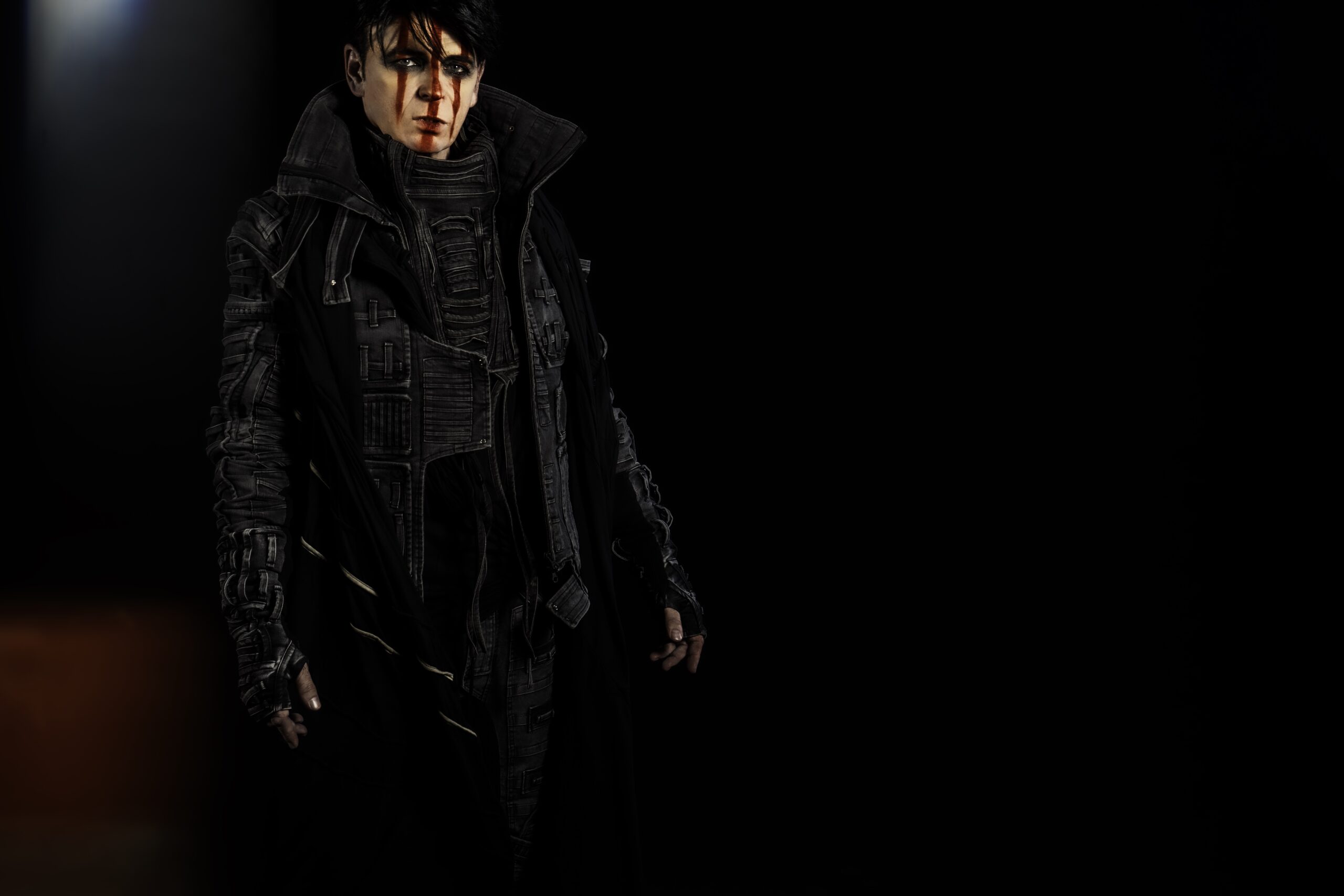
It’s quite fashionable these days to talk about ‘doing the inner work’, but Gary Numan lives and breathes it. He also exemplifies the reward for doing so – which is why he tells me he wouldn’t go back and change a thing.
“You become the person you are because of the things that shape your evolution,” he muses, fixing me with the most intense expression. “And I like who I am now. I really do. I think I’ve ended up being a pretty nice person.
“I still work really hard, good worth ethic, still ambitious – but I’m not a slave to it. I love my kids, and family is everything. This might seem really old-fashioned, but I think I’ve got proper values, you know. I don’t fuck about with women, I don’t flirt, I just love my family.
“So if you like what you’ve become, it would be very, very dangerous to change anything about how you got there. I can look back and see a mountain of things I might have wished I’d done differently at the time, but every one of those shaped the way I saw things, evolving into who I am.
“All the touring, all the career, and worrying about songs and all that business…I mean, you can worry about those things, but the only thing that really bothers me is if I make a mistake with the kids. I really care about those sorts of things. Everything else is secondary.”

Being a father does not come with a handbook, of course, but I think most would agree Gary played a parenting blinder this summer when he invited Raven and Persia, both musicians in their own right (and Raven will be touring with Gary on “Telekon”), to perform with him on stage at Glastonbury.
He sounds relieved to report that the modern music industry is getting better for new artists like his daughters, having very publicly calculated a few years back, during the media coverage of a Government committee inquiry into the commercial models used by online music platforms, that he’d been paid just £37 for a hit that had been streamed more than a million times.
The digital revolution has certainly democratised the music industry for many, putting affordable access to recording studios and broadcast channels right there in your pocket or on your desk. But it has come at a price, quite literally.
“I do think it’s getting better. I think there’s been a lot of work going on behind the scenes to hold a lot of these companies to account – and slowly and surely, almost unnoticed really, it’s getting better.
“It’s still terrible! I’m not saying it’s fixed by any means, and the amount you get per play or per sale is still pretty pathetic. But when I look now at the income I get from online streaming and download type of things, the numbers are so high now that it’s a reasonably meaningful amount of money.
“Obviously, from a song-writing point of view, we always think we should get way more than we do for the pleasure we give! But we’re in a rapidly changing world at the moment. The current thing, for example, is everything is sold on a subscription. Television, music. Even cars! You buy a car that can do everything, but if you actually want it to do everything, you have to pay x-amount a month to get it to do it! I hate it. It’s unsustainable, in my opinion.
“But I had a major result [with modern tech] recently. About two weeks ago I decided I was scrolling too much and I was going to stop. The first week was tricky, but last week – I’ve not scrolled at all. Nothing. That’s like coming off heroin overnight, and I’m totally proud of myself!
“I was getting more and more concerned about becoming a screen-devoted human being, you know. And instantly, stopping it has made a difference. I’m reading books, I fall asleep quickly, I sleep better and I sleep longer, and I wake up feeling better for it. And the only change is not scrolling. The problem is, there are little nuggets of gold in there, which keeps sucking you back. But those nuggets are not worth what you give up.”
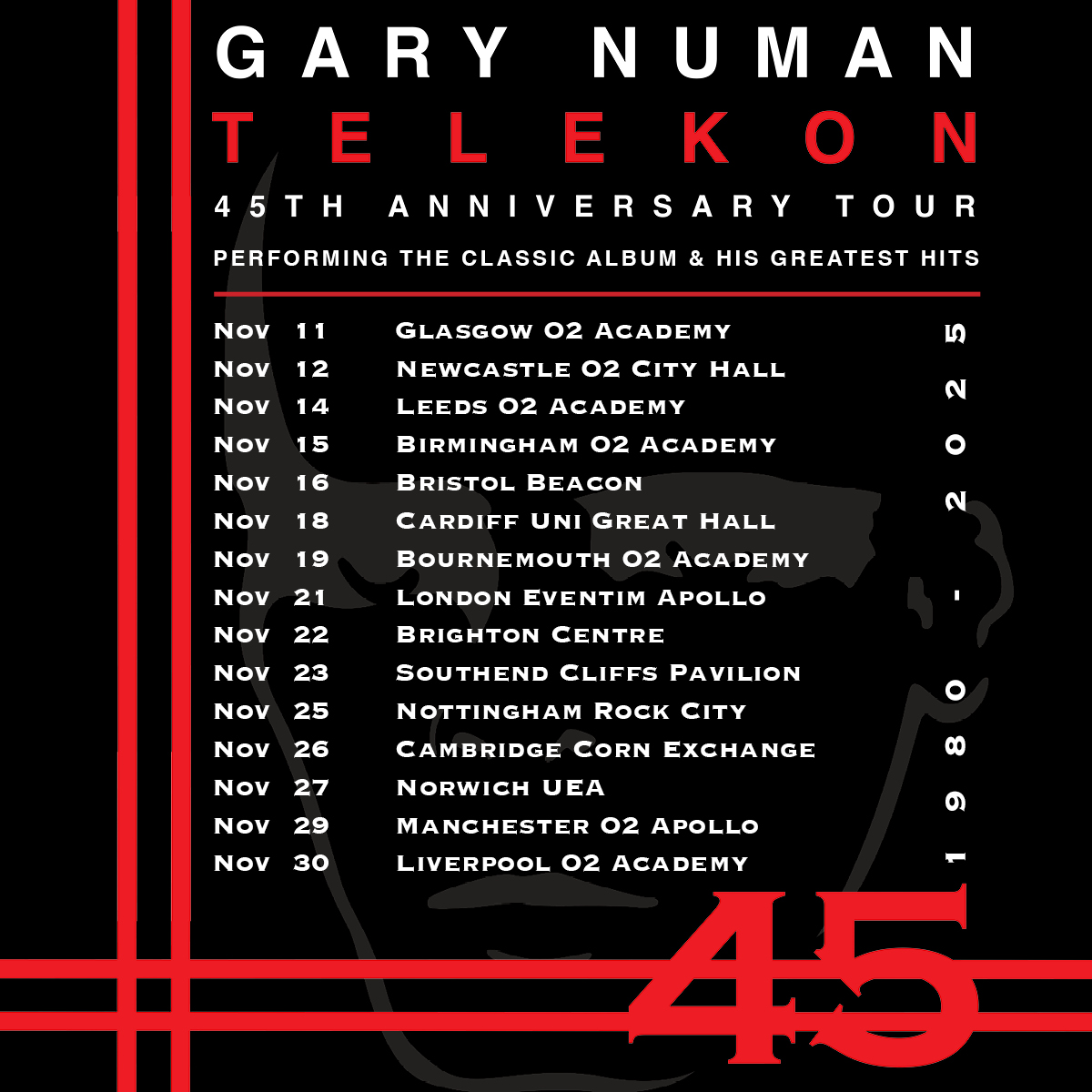
Mindful that I could chat happily to Gary for hours – he’s very engaging for a man who claimed earlier not to like people all that much! – I learn that he has been especially generous with the time he has given me today.
It turns out this is his last full day at home in Los Angeles for the thick end of four months. A US tour as special guest with The Psychedelic Furs is followed immediately by his UK “Telekon” tour – 15 dates including London’s Eventim Apollo – and his trip here will be extended for Gemma to have that major surgery on her spine, in London.
Rest and medical recuperation will follow before travelling back to the US, which at least gives the Numans the chance to spend some time with wider family at their home in the “calm and relaxing rugged beauty” of Scotland.
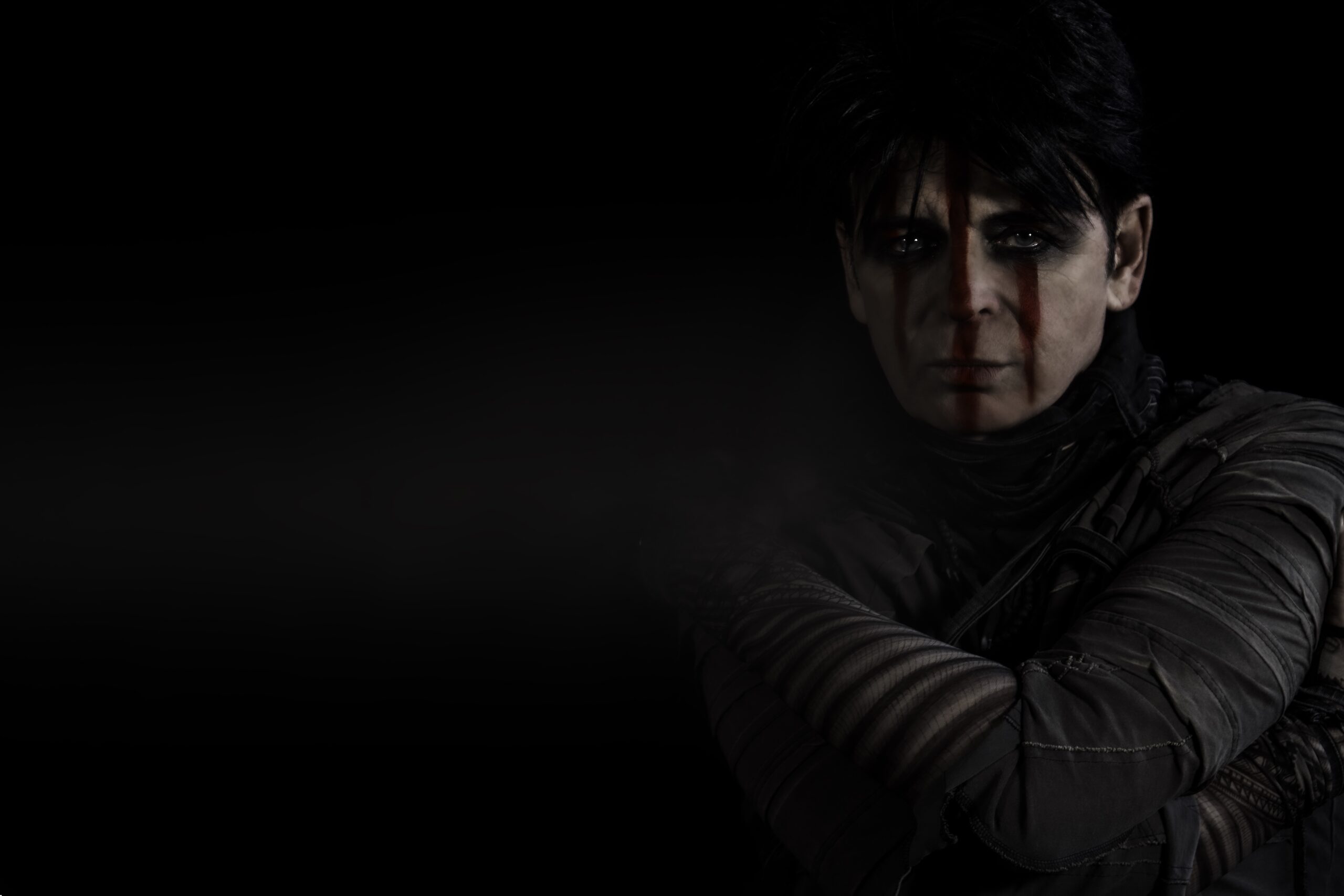
Being at home today feels poignant, for a man whose family values mean he takes being a dog-dad seriously too.
“We’ve got an English mastiff dog called Mildred, who is old and definitely getting to the end, and I’m a little bit worried she’ll be gone before we get back off this tour. We’ve lost two dogs already in the last six months or so, and this could be my last full day with her. So I’m a bit sad.
“The other dog we’ve got is called Wellington. Wellington Boot, to give him his full name. He’s a cross between a husky and a Bernese mountain dog – so he’s big. He was sleeping on my bed last night and had a nightmare, which woke me up because I thought it was an earthquake!”

But however peaceful a Scottish sojourn sounds, that forward-thinking part of Gary’s personality is already whirring and planning, giving an insight perhaps into the prolific nature of his catalogue of work.
“Hanging out in Scotland will be a really, really cool thing to do. But when that’s all done, I need to start on the new album in earnest, because I’m really behind!”
That Numan catalogue is extensive: 24 studio albums and a few re-issued, five extended solo album releases, 32 live albums, 20 compilations, four soundtrack albums and six re-mix albums. At least 50 singles, and a slew of collaborations or as featured artist. Three # one albums in the UK, seven top 10 albums and 10 top 20 albums.
His last two studio albums both peaked at # two in the UK chart – 2017’s “Savage (Songs from a Broken World)” and 2021’s “Intruder”. A new live album, “A Perfect Circle: Live”, dropped in July this year (2025), which captures his triumphant “Intruder” live show at Wembley’s OVO Arena in 2022.



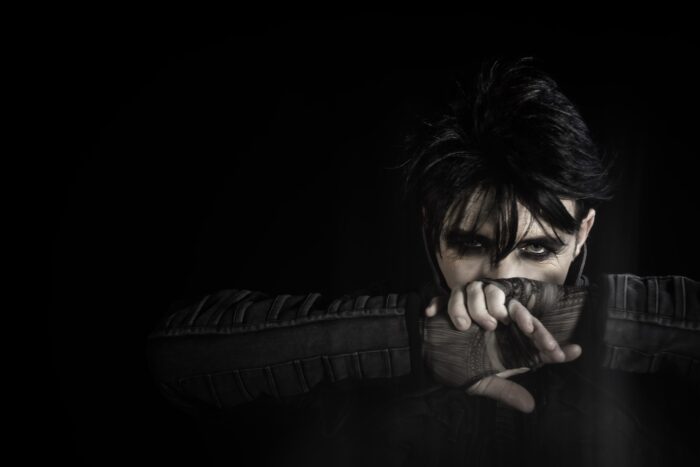
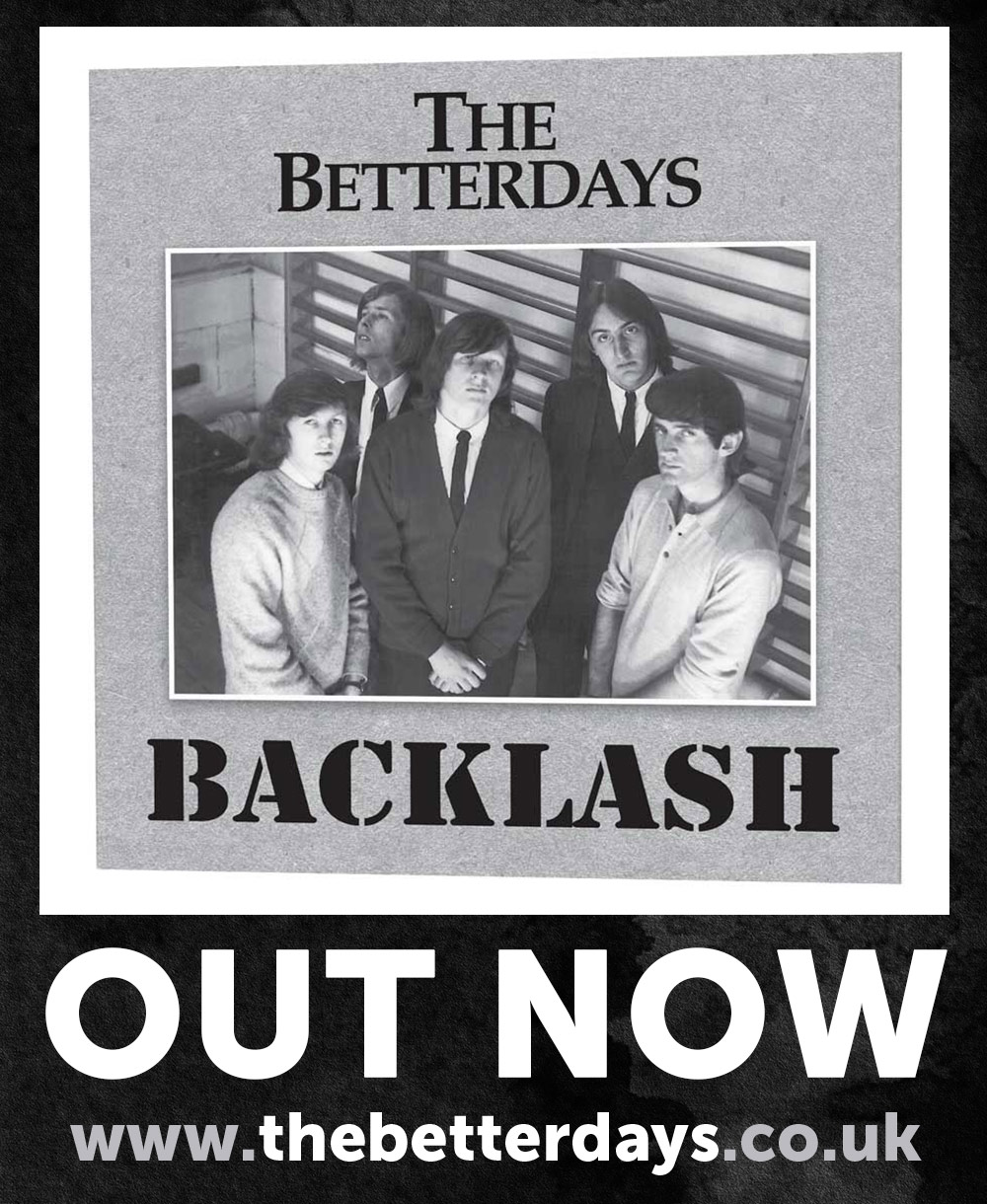












Recent Comments